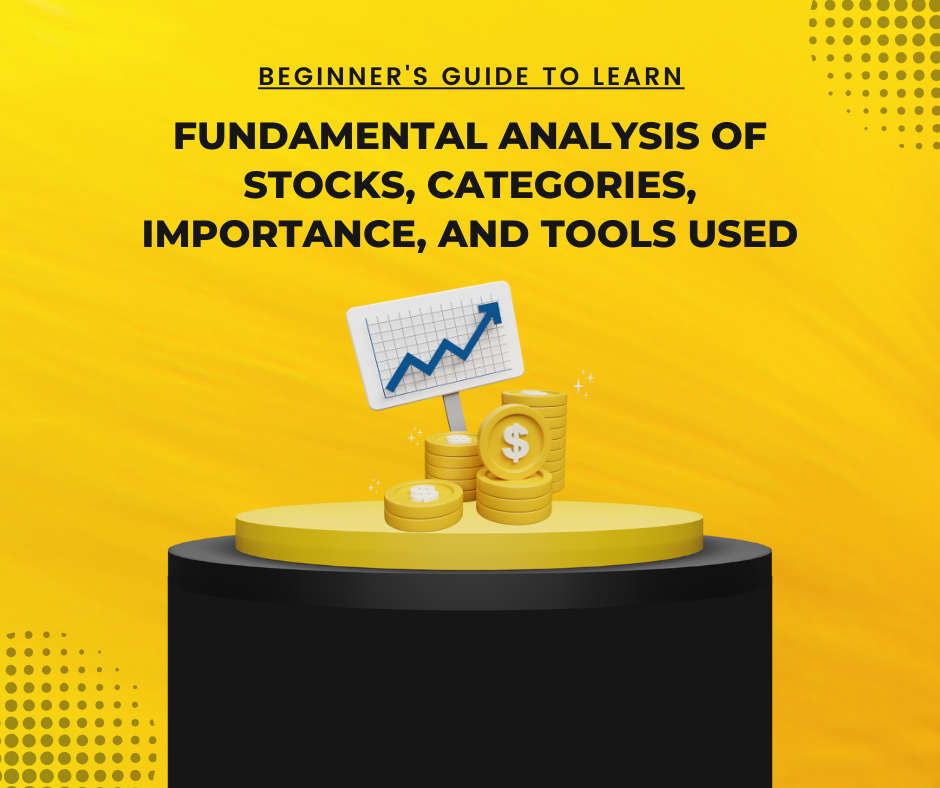
What is Stock Market Trading?
Stock market trading involves buying and selling shares of publicly listed companies. When you purchase a share, you are essentially buying a small piece of that company. If the company does well, the value of your share may go up, allowing you to sell it at a higher price and make a profit. However, if the company performs poorly, the value of your share might decrease, leading to a potential loss if you sell.
Trading in the stock market can be an exciting way to participate in the financial growth of companies and the economy. It offers the potential for significant returns, but also comes with risks. Understanding the basics of stock market trading is essential for anyone looking to start trading.
Basic Terms Every Trader Should Know
1. Stock/Share
A stock or a share represents a unit of ownership in a company. Owning a share gives you a claim on part of the company's assets and earnings.
2. Stock Exchange
A stock exchange is a marketplace where stocks are bought and sold. The major stock exchanges in India includes National Stock Exchange (NSE) and Bombay Stock Exchange (BSE).
3. Broker
A broker is a person or firm that executes buy and sell orders or provide you with platform to execute your trades for stocks and other securities. Brokers charge a commission for their services.
4. Bull Market
A bull market refers to a period where stock prices are rising or are expected to rise. This is often driven by investor confidence and strong economic indicators.
5. Bear Market
A bear market is the opposite of a bull market, characterized by falling stock prices and generally negative investor sentiment.
6. Bid and Ask Price and Last Traded Price
Bid Price: The highest price a buyer is willing to pay for a stock.
Ask Price: The lowest price a seller is willing to accept for a stock.
The difference between the bid and ask price is called the spread
Last Traded Price (LTP): LTP represents the latest price at which a transaction has occurred, reflecting the current market value of the stock.
7. Market Order
A market order is a request to buy or sell a stock immediately at the current market price. Market orders are executed quickly but do not guarantee a specific price.
8. Limit Order
A limit order is an order to buy or sell a stock at a specific price or better. A buy limit order will only be executed at the limit price or lower, while a sell limit order will be executed at the limit price or higher.
9. Portfolio
A portfolio is a collection of investments owned by an individual or institution. A diversified portfolio contains a mix of different types of investments to spread risk.
10. Dividends
Dividends are payments made by a company to its shareholders, usually from profits. Dividends provide a way for shareholders to earn a return on their investment without having to sell their shares.
11. Initial Public Offering (IPO)
An IPO is the first time a company offers its shares to the public. Through an IPO, a private company becomes a publicly traded company.
12. Index
A stock market index measures the performance of a group of stocks. Examples include Nifty 50, which tracks the top 50 companies on the National Stock Exchange of India.
13. Volatility
Volatility refers to the degree of variation in the price of a stock over time. High volatility means the stock price can change dramatically over a short period, while low volatility indicates more stable price movements.
14. Blue-Chip Stocks
Blue-chip stocks are shares in large, well-established, and financially sound companies with a history of reliable performance. Examples include companies like Apple, Microsoft, and Reliance Industries.
15. Day Trading
Day trading involves buying and selling stocks within the same trading day. Day traders aim to profit from short-term price movements and typically do not hold positions overnight.
Conclusion
Understanding these basic terms is the first step towards becoming a knowledgeable stock market trader. Trading stocks can be a rewarding endeavor, but it requires continuous learning and careful strategy. By familiarizing yourself with the fundamental concepts and keeping up with market trends, you can improve your chances of success in the stock market.
Comments (0)
Categories
Recent posts


Tips on how to select the Best Share ...
18 Sep 2024
Best Intraday Trading Strategies for ...
24 Jun 2024
Fundamental Analysis Of Stocks, ...
4 Jul 2024



